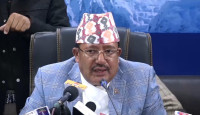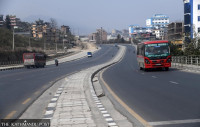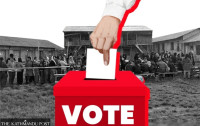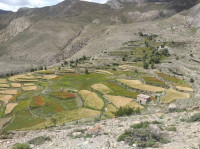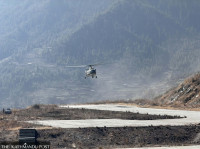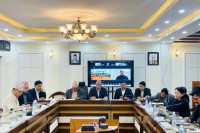National
Has Oli accepted the constitution has flaws and it needs amendments?
In his House dissolution recommendation, Oli has said snap polls are required to revise the charter. But analysts wonder if he has any other sinister motive, as there’s no certainty that elections, if they happen, will give him such a majority.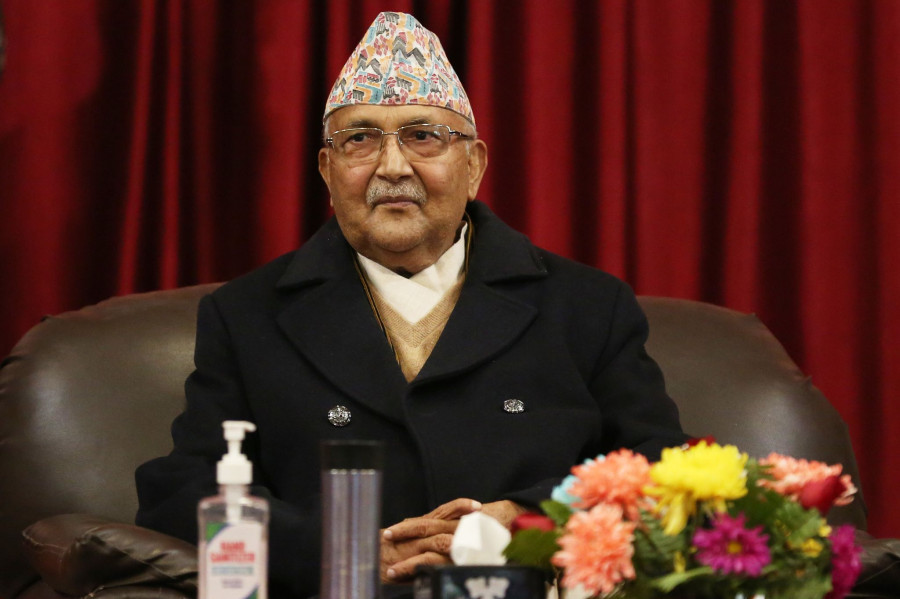
Binod Ghimire & Tika R Pradhan
If there is any political figure in Nepal who has always demonstrated a strong position against amendments to the constitution, it is Prime Minister KP Sharma Oli. He has maintained a consistent position over the years that the constitution can be amended based on the rational and necessity.
After securing a thumping victory in the 2017 general election, Oli became prime minister in February 2018. On May 28 that year, he signed a two-point agreement with then Sanghiya Samajbadi Forum Nepal, agreeing to amend the constitution “on the basis of mutual agreement”. The Upendra Yadav-led Sanghiya Samajbadi Forum joined the Oli government, while then Rastriya Janata Party decided in March that year to extend its support from outside in hopes that the constitution would be amended.
However, that didn’t happen. Both the parties withdrew their support to the government in 2019.
Oli had even rejected the proposal of Yadav, who was a deputy prime minister, to form an expert panel to make recommendations for the amendments. Yadav, along with Mohammad Istiyak Rai, who was minister for urban development, quit the government in December 2019. The Rastriya Janata Party had already withdrawn its support in March 2019.
But when Oli decided to dissolve the House of Representatives on December 2o last year and call snap polls, he argued that he needed a majority government to accomplish, among other things, constitutional amendments.
“Since political parties too have been demanding an amendment to the constitution time and again and timely amendments have not been possible due to the lack of a two-thirds majority for the ruling party, a majority government is essential,” states the letter undersigned by Prime Minister Oli, recommending that the President dissolve the House and declare snap poll for April 30 and May 10.
“Also, to implement the decision to bring back its land included in the country’s map, a two-thirds majority government is needed.”
Oli’s argument has raised many an eyebrow, as it comes as his admission that the constitution does need an amendment, an action that he was reluctant to perform.
But why?
Observers and political leaders say more than the realisation that the constitution needs an amendment, it is Oli’s political (election) tactic to woo some constituencies.
“I don’t believe Oli, who has even rejected the idea of forming a taskforce to study the need for amendments, actually wants to revise the constitution,” Bipin Adhikari, former dean at Kathmandu University School of Law, told the Post. “This is his tactic to woo the people [mainly from the Tarai/Madhes] who have long been demanding revision to certain provisions of the charter.”
According to Adhkari, Oli will never go for any constitutional amendments.
Oli’s House dissolution move has attracted widespread opprobrium, with political parties, experts on constitutional affairs and civil society members calling the action unconstitutional and an attack on the constitution.
The Janata Samajbadi Party, which was born out of a merger between the Sanghiya Samajbadi Forum Nepal and Rastriya Janata Party, which had once protested against the constitution promulgation, has taken to the streets demanding that the constitution must be protected as Oli has made a brutal assault on it.
Chandra Dev Bhatta, a political commentator for the Post’s sister paper Kantipur, said Oli through the reasons presented for the House dissolution has accepted that the constitution needs a revision for its wider acceptability.
“Though many things remain unclear, this is fact that Oli now has accepted there are some issues in the constitution that need to be fixed,” Bhatta told the Post. “He might have realised the fact that an amendment to the charter could only give it a wider acceptability.”
Like Adhikari, Bhatta also believes that Oli might also be trying to give his image a makeover, as he is known as a leader who is intolerant of Madhes and the Madhesi people.
Though the House dissolution move is being heard by the Supreme Court, Oli has been claiming that elections would take place on the declared dates.
Lately, Oli has been delivering speeches in such a way as if he is on an election trail. A few weeks ago, Oli ordered the leaders of his party’s youth wing to organise what they called a “dhoti rally”, bringing the people of Tarai/Madhes to Kathmandu. Observers had branded it as a farce, calling it Oli’s futile attempt to win over some constituencies in the plains.
Shree Krishna Aniruddha Gautam, a political analyst, said Oli knows he needs to please the Madhesi and marginalised communities when he goes for elections and that’s why he has now accepted that the constitution needs a revision.
“It’s not that Oli did not know that the constitution needed amendments as some sections of the society were raising their voices for the same,” Gautam told the Post. “It looks like he is now using the charter revision as a tool to widen his constituency if elections happen.”
When Oli returned to power, he had majority votes in Parliament because his CPN-UML and Pushpa Kamal Dahal’s Maoist Centre had merged to form the Nepal Communist Party.
But the House dissolution has cleaved the Nepal Communist Party in two. A sizeable number of leaders and cadres are with the other faction of the Nepal Communist Party which is now led by Dahal and Madhav Kumar Nepal, Oli’s arch-rival in the then UML party.
Many say Oli has, in the letter recommending the House dissolution, has also argued that he needs “a two-thirds majority government” to work in favour of the country without any hurdles, conclude the peace process and address the problems facing the country in an effective manner.
But it is unclear how snap polls can guarantee a majority government in a country which has seen a hung parliament for decades. It’s also unclear what makes Oli so confident that he will get to lead a two-thirds government if elections do happen on the declared dates.
Until Friday, it was not known to the public what reasons Oli had presented while recommending the House dissolution. But since the letter has surfaced in the media, many are now wondering if Oli has some sinister motives, as he has stressed the need for a two-thirds majority government to amend the constitution.
Hari Roka, a political economic commentator, said the amendment issue has been raised mainly by those people who are for strengthening federalism.
“However, Oli has always worked against federalism. So it looks like his amendment calls are guided by his intent against the federal set-up,” said Roka. “I don’t think Oli dissolved the House to hold the elections. In case he holds elections and goes for an amendment, his aim will be to attack federalism.”
Yadav, chairman of the Janata Samajbadi Party, said the constitutional amendment argument is nothing but Oli’s yet another political stunt.
“He commanded a two-thirds majority but he was afraid to even form a panel to study if amendments were required,” Yadav told the Post. “We had joined the government on the condition that the Oli government would amend the constitution. Since he refused, we decided to walk away.”
According to Yadav, Oli’s arguments are inconsistent.
“There is no coherence in his arguments,” said Yadav. “He says he needs a two-thirds majority and for that he dissolved the House. How does he know he will win a two-thirds majority in the midterm polls, when his party also has split.”
But some say Oli might have worked out some kind of deals with some sections of the political parties, including the Nepali Congress and the Janata Samajbadi Party.
According to Shyam Shrestha, a political analyst who has followed Nepal’s leftist politics for decades, Oli might be under the impression that he could garner support of the Congress, Janata Samajbadi Party and Rastriya Prajatantra Party.
While the Congress has refused to join the Dahal-Nepal faction and Janata Samajbadi Party for a joint protest, Rastriya Prajatantra Party, a pro-monarchy, pro-Hindu party, has welcomed Oli’s decision to call snap polls.
“The way Sher Bahadur Deuba, the Congress president, has made some statements and some pro-monarchy, pro-Hindu lawyers have rushed to defend Oli in the court also shows there could be some kind of deals,” said Shrestha.
That said, according to Shrestha, it will be wrong and premature to assume that Oli would get a two-thirds majority if elections do happen.
“His confidence could be misplaced also. Confidence in politicians comes from three factors—popularity because of good governance, foolishness, and excessive self belief that they can take people for a ride easily,” Shrestha told the Post. “In Oli’s case, the latter two factors seem to be working.”




 19.66°C Kathmandu
19.66°C Kathmandu

